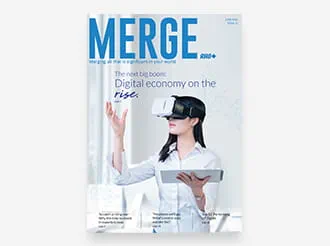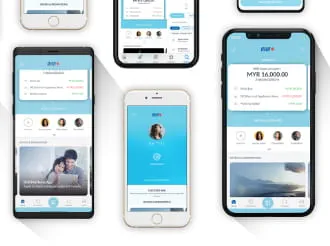To Rent or Buy? Rethinking Property Ownership in a Changing World
Is home ownership the ultimate marker of success? We discuss the pros and cons of renting and buying so you (or your adult child) can make an informed decision.
For decades, buying a home has been considered a rite of passage – the ultimate milestone of adult success. If you have a mortgage, you’ve made it in life. You are the shining epitome of stability, responsibility, and wealth-building potential. Basically, everything your parents wanted you to be. But with shifting lifestyles, rising costs, and increasing mobility, does property ownership really mean everything it used to?
Is owning a home still the smartest path to financial security, or has it become a weighty anchor limiting your freedom and flexibility? That is a very divisive question. The answer isn’t black and white anymore, and for many, the right choice may come as a surprise.
Renting: a smarter way to live large?
Do you imagine yourself living in a luxury condo in the heart of KL, with Instagram-worthy cafes just a walk away, co-working spaces buzzing with the energy and hope of young entrepreneurs, and a nightlife so bright and bewildering you wonder if anyone ever sleeps? If you owned this condo, the mortgage, upkeep, and hidden costs might well exceed your budget. But as a tenant? You can enjoy the lifestyle without the worries.
Renting often gets a bad rap, and undeservedly so. In today’s economy, it can be a financially strategic move, especially for those who value the lifestyle and flexibility it affords.
Here’s why:
- Mobility: Renting makes it easy to move as your work, relationship, or personal needs evolve.
- Affordability: In many cases, renting high-end units is cheaper than servicing a mortgage.
- Lifestyle: Renting allows you to live in upscale neighbourhoods without tying up your capital.
- Lower maintenance: Repairs? Sinking funds? Renovation costs? Let the owner deal with that stuff.
In fact, many lifestyle-oriented luxury homes have relatively low rental yields. That means the rental income they generate isn’t proportionate to their high price tags. If you rent such properties, you may be getting more value for less cost—especially if you own another property in a more affordable area that offers better returns.
Buying: When it makes sense
We can no longer simply plonk a downpayment on a nice house in any sensible location and enjoy the value appreciation, like our parents did decades ago. There are simply more factors to consider now, and too many options. Millennials are struggling to buy homes, and GenZ has all but given up on the idea. It’s understandable. Property prices have far outpaced wage growth over the past 30 years. In addition, Malaysians are facing higher living costs, which leads to low savings and higher indebtedness.
HOWEVER…there is still good reason to own a home. Buying a home still holds long-term financial advantages – when done strategically. Property can be a powerful hedge against inflation, offering both value appreciation and passive income through rental (or Airbnb). But buying without careful planning can lead to cash flow issues, poor returns, and even a case of buyer’s regret.
So, how do you know if you should buy?
Ask yourself these questions:
- Is your income stable enough to comfortably commit to monthly repayments?
- Are you ready to commit to one location for the next 10 years or so?
- Have you accounted for upfront and hidden costs (legal fees, stamp duty, repairs and renovations)?
- Is your Debt Service Ratio (DSR) within a healthy range?
- Is it a good location with long-term growth potential – infrastructure, amenities, schools, and rental demand?
If you answered “YES” to most of these questions, then buying may be a good move. And remember, you can use your EPF Account 2 to help fund your first home. Visit RHB Home Loans to find the right option that matches your financial profile.
Business owners: own or lease?
Owning a business property may seem like a no-brainer — it builds equity and protects you from rental hikes. You gain autonomy. But in a fast-changing marketplace, flexibility can be more valuable than ownership.
Scenario 1:
If your business is in a high-growth phase, or likely to shift locations to stay competitive, leasing makes more sense. It lowers capital commitment, improves cash flow, and lets you adapt quickly to new opportunities. If everything can be done remotely or through outsourcing, you may not even want to lease at all.
Scenario 2:
If you’re setting up in a strategic long-term location — such as a retail space with consistent footfall, a manufacturing facility, or a logistics hub near a major highway — ownership could offer both stability and capital appreciation.
Bottom line: evaluate your growth plans, cash reserves, and location strategy before committing to either path.
Alternative ownership options: REITs and Unit Trusts
Still want exposure to property without the hassle of maintenance, tenant management, or renovation costs? Consider investing in Real Estate Investment Trusts (REITs) or unit trusts with REIT exposure. These options allow you to earn income from commercial and residential property portfolios without being a landlord. They are ideal for investors seeking:
- Diversified property exposure
- Regular dividend income
- Lower entry costs
- Minimal hands-on management
Ask your RHB Relationship Manager about funds with property exposure that align with your long-term investment goals.
For parents: what to tell your adult child
Many young adults today are asking themselves whether they should buy or continue renting. And as parents, we often feel the urge to nudge them towards ownership — especially if we believe it’s the safer, wiser path. But times have changed. Values have shifted. Young adults are holding off on starting a family due to the costs involved, and some may not want kids at all. The world your child is entering is vastly different from the one you knew. “When I was your age, I already had three kids and owned a home” — doesn’t carry much weight today.
Help them to reflect on the five ownership questions mentioned earlier. Additionally, they should consider whether buying a home might limit their personal or professional freedom — intangible factors that are just as important when making a long-term decision.
Remind them: property ownership is a financial tool, not a rite of passage. Renting while investing elsewhere might even be the smarter path for now. Thanks to a well-developed financial market, there are now many paths to financial success that don’t include physical property ownership. Ask them to speak to a Relationship Manager to find out which investment options suit their goals and needs.
Smarter, not harder
Ultimately, the rent-vs-buy debate isn’t about which is better. There is no one-size-fits-all template to winning in life. It’s about what aligns with your life stage, financial capacity, and long-term goals. If you’re unsure where to begin, start by:
- Comparing properties to understand true value
- Considering both rental yield and capital appreciation potential
- Speak to a trusted financial advisor or Relationship Manager
Build a strategy, not just a dream
Whether you rent a high-rise for the lifestyle, buy a starter home in a growing suburb, or invest through REITs—the key is intention. Property should serve your goals, not the other way around. So, before you sign that tenancy agreement or mortgage contract, ask yourself: Does this move me closer to the life I want to build?
Ready to explore your options? Speak to your RHB Relationship Manager today. Let’s craft a property plan that works not just for your wallet, but for your future.
Terms and conditions apply. For further details on the benefits and exclusion of the product, please refer to the Product Disclosure Sheet (PDS) and Letter of Offer (LOA).
Disclaimer:
This article has been prepared by RHB and is solely for your information only. This article is strictly private, confidential and personal to its recipients and should not be copied, distributed or reproduced in whole or in part, nor passed to any third party, without obtaining prior permission of RHB Bank/RHB Islamic Bank Berhad (“RHB”). In preparing this presentation, RHB has relied upon and assumed the accuracy and completeness of all information available from public sources or which was otherwise reviewed by RHB. Accordingly, whilst we have taken all reasonable care to ensure that the information contained in this presentation is not untrue or misleading at the time of publication, we cannot guarantee its accuracy or completeness and make no representation or warranty (whether expressed or implied) and accept no responsibility or liability for its accuracy or completeness. You should not act on the information contained in this article without first independently verifying its contents.
Any opinion, management forecast or estimate contained in this article is based on information available as the date of this article and are subject to change without notice. It does not constitute an offer or solicitation to deal in units of any RHB fund and does not have regard to the specific investment objectives, financial situation or the particular needs of any specific person who may receive this. Investors may wish to seek advice from a financial adviser/unit trust consultant before purchasing units of any funds. In the event that the investor chooses not to seek advice from a financial adviser/unit trust consultant, he should consider whether the fund in question is suitable for him. Past performance of the fund or the manager, and any economic and market trends or forecast, are not necessarily indicative of the future or likely performance of the fund or the manager. Investors are advised to read and understand content of the relevant documents including but not limited to prospectus or information memorandum that has been registered with Securities Commission and Product Highlight Sheet before investing. Investors should also consider all fees and charges involved before investing. Prices of units and income distribution, if any, may go down as well as up; where past performance is no guarantee of future performance. Units will be issued upon receipt of the registration form referred to and accompanying the Prospectus. The printed copy of prospectus and Product Highlight Sheet is available at RHB branches/Premier Centre and investors have the right to request for a Product Highlight Sheet.
This article has not been reviewed by the Securities Commission Malaysia (SC).
RHB Bank Berhad 196501000373 (6171-M)












